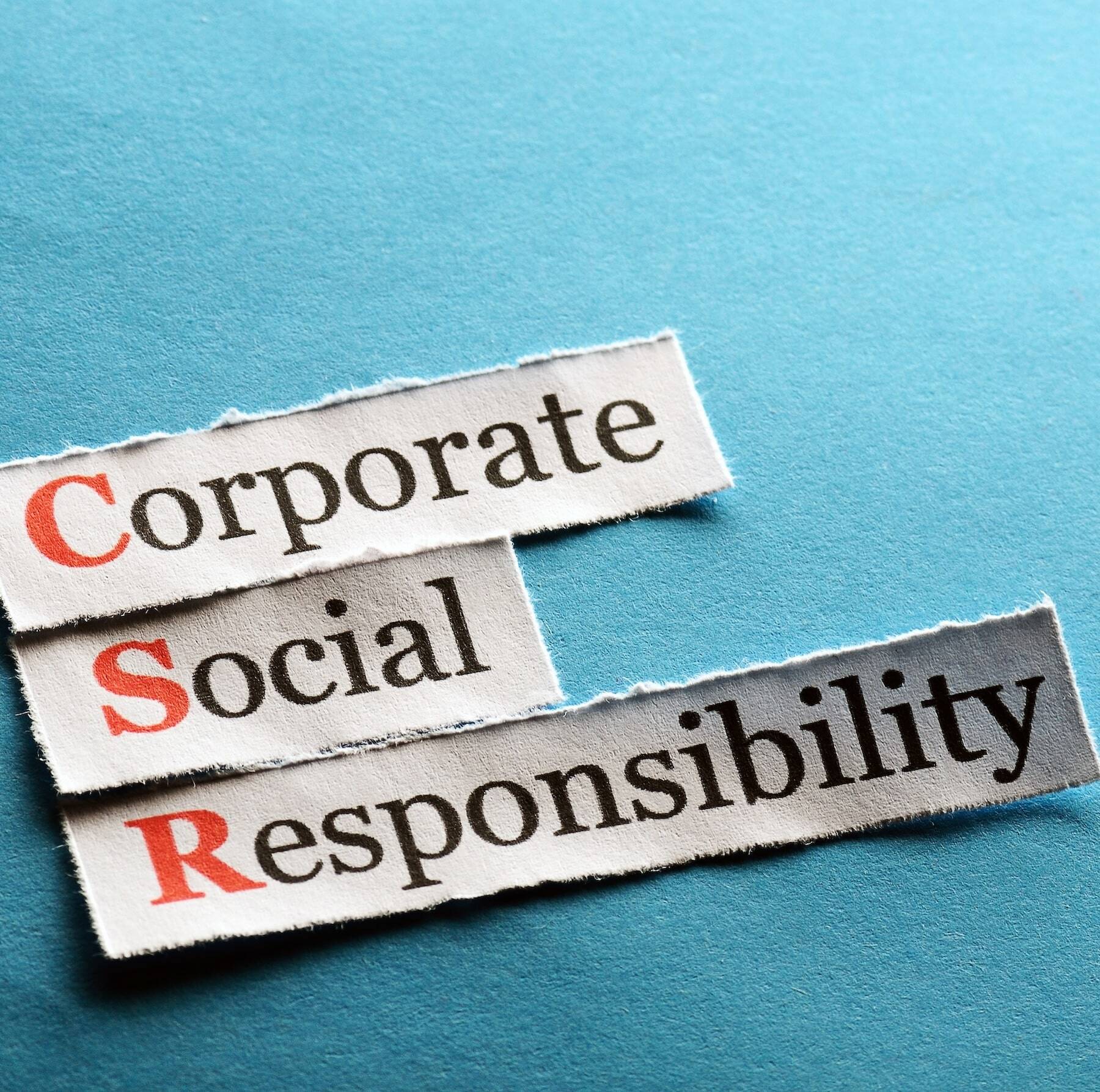Corporate social responsibility? That’s just about reducing our carbon footprint and donating to charity, right?
Wrong.
While taking steps to reduce your organization’s environmental impact is an important part of corporate social responsibility (CSR), it actually covers a far broader landscape.
CSR is a set of guidelines for how an organization operates, in order to support, rather than damage, the environment. And that doesn’t just mean the physical environment, it also means the economic, social and ethical environments.
In a nutshell, I think of CSR as going above and beyond legislation to do the right thing and positively impact the world.
It considers how an organization treats its employees and customers, how well it supports its local community, how fairly it does business with suppliers, how effectively it embraces its environmental responsibilities and much more. And while this might all sound very… expensive… embracing CSR can pay great dividends. Studies show a positive correlation between CSR investments and long-term organizational profitability through greater customer loyalty, boosted employee productivity, increased innovation and reduced costs.
CSR is typically made up of four pillars – environmental, ethical, economic and philanthropic. Let’s explore each one in a little more detail.
Environmental responsibilities
 The first pillar of CSR is environmental responsibility, which focuses on an organization taking proactive steps to regulate its energy consumption and offset any negative environmental impact.
The first pillar of CSR is environmental responsibility, which focuses on an organization taking proactive steps to regulate its energy consumption and offset any negative environmental impact.
It’s most certainly not about ‘greenwashing.’
Actions speak louder than words, and organizations can make a real difference with these three steps:
Learn more about Copart’s story! |
- Reduce harmful practices - by reducing waste, removing the use of single-use plastics, reducing water consumption, reducing unnecessary business travel and decreasing pollution
- Regulate energy consumption - by sourcing sustainable or recycled materials, increasing the use of renewable energy and switching to more sustainable suppliers.
- Offset negative environmental impacts - by funding research, donating to environmental causes, planting trees and supporting renewable energy installations.
It’s important to remember that your environmental responsibilities span further than what happens within the four walls of your organization. Think about your entire supply chain – are you confident that all of your suppliers and manufacturers are upholding the same environmental standards?
Think also about your employees: Are you helping them to make environmentally friendly choices about their commute to work? Things like cycle-to-work or car-share programs and public transport discounts are all awesome.
You need to have a solid environmental strategy in place, but I genuinely believe that the little things can have the biggest impact!
Ethical responsibilities
 The next pillar is about making sure your organization operates fairly and ethically by doing what’s right and consciously avoiding any harm.
The next pillar is about making sure your organization operates fairly and ethically by doing what’s right and consciously avoiding any harm.
This means the way your organization treats all of its internal and external stakeholders, including employees, leaders, customers, investors and suppliers.
Are your internal policies and procedures consistent with your values? Think about things like the quality of your parental leave policies and benefits, the rates you pay suppliers, your level of commitment to providing a ‘livable wage’ and the training you provide to leaders about how you expect them to manage their direct reports. Again, organizations also need to take a good look at their supply chains to ensure they are purchasing from suppliers that aren’t involved in anything illegal or unethical.
Fulfilling your ethical responsibilities is much broader than corporate governance, encompassing things like employee mental wellbeing support and the quality and helpfulness of the benefits packages you offer.
Economic responsibilities
 An organization’s economic responsibilities are far greater than avoiding debt and maximizing profits. While operating responsibly and profitably to ensure economic sustainability always needs to be a priority, this pillar is about making financial decisions based on a broader commitment to do the right thing.
An organization’s economic responsibilities are far greater than avoiding debt and maximizing profits. While operating responsibly and profitably to ensure economic sustainability always needs to be a priority, this pillar is about making financial decisions based on a broader commitment to do the right thing.
On top of avoiding unnecessary debt, paying suppliers promptly and charging a fair price for products or services, an organization’s economic responsibilities include benchmarking employee salaries against the broader market and making fair, green and ethical investments.
A recent survey highlighted 72% of global HR managers feel that cost of living increases are negatively impacting their employees, and I see it as both an ethical and economic responsibility to support the financial wellbeing of your employees.
Philanthropic responsibilities
 Last, but by no means least, the final pillar is philanthropic responsibilities. These are perhaps the first things that come to mind when you hear someone say ‘CSR’... like supporting local communities, charitable giving and enabling employees to take volunteering days.
Last, but by no means least, the final pillar is philanthropic responsibilities. These are perhaps the first things that come to mind when you hear someone say ‘CSR’... like supporting local communities, charitable giving and enabling employees to take volunteering days.
You should think about your philanthropic responsibilities as the actions you take as an organization to actively better society as a whole.
It’s all about what you do to be a good corporate citizen, often involving dedicating a portion of earnings to external causes. Some organizations even go so far as to set up a charitable trust or partnership. I always feel these kinds of programs are most impactful when an organization and its employees are genuinely passionate about the causes being supported. So it can be helpful to give your employees the opportunity to get directly involved by exchanging rewards for charitable donations or participating in volunteering programs.
And don’t forget, in addition to helping improve society, embracing your philanthropic responsibilities presents a great opportunity to build employee pride, boost engagement and enhance your employer brand.
Learn about how Reward Gateway can help you make your organization a better place to work by scheduling a call with one of our friendly employee engagement experts.

 Anthony Knierim
Anthony Knierim

.png)


